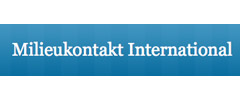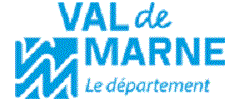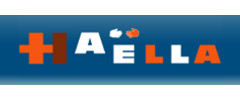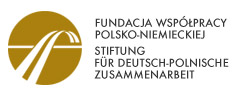Women’s and Environmental network WECF thanks Czech artist for getting worldwide attention for Bulgarian sanitation problems
Bulgarian representative in Brussels outraged by squatting toilet in Czech art work
16.01.2009 |WECF Press Release
The Czech presidency has caused a scandal with the art exhibition “Entropia“, presented at the European Council in Brussels by Czech artist David Cherni, who made sculptures of all EU countries. The Bulgarian government reacted furiously, as Bulgaria was portrayed as a cluster of squatting toilets. Cherni argues that the idea of the exhibition was to present funny characteristics in a jesting, not negative, way .
WECF executive director Sascha Gabizon is not surprised by the strong reaction from the Bulgarian government: "Sanitation is still a delicate issue in Bulgaria. Our organisation has been working on this issue in Bulgaria since 2003, and, just as in Romania, the lack of safe sanitation and hygiene is a daily problem for households, schools and workplaces, especially in rural areas”.
The picture can be found here
The artist, Cherni, states that the Bulgarian map refers to his childhood memories, when he and his friends visited the country on holiday and the squatting toilets made an impression on them as something unusual. The permanent representative of Bulgaria in the EU said that the exhibition is shameful and grotesque. According to the representative it is a humiliation towards the Bulgarian nation and an offence against the national dignity of the Bulgarian people.
Bistra Mihaylova, country coordinator at WECF, on the other hand, states: 'only 2.1% of all the rural villages have access to centralized sewage system (not treatment), which means some 2 million people rely on outdoor, smelly, pit latrines. School children, especially girls, will often not drink during the day to avoid having to use the toilet, which increases health problems like bladder infections. In fact, having a functioning squatting toilet like the one shown in the Entropia exhibition is a luxury for many rural Bulgarians!'.
Sascha Gabizon, WECF, adds 'it must be said that many of these squatting toilets do not function, due to problems with the water and waste water systems. And a flush toilet which does not flush, is even worse than an open pit outside in the garden.
Bistra Mihaylova, WECF, comments "it is a fact that the sanitation infrastructure is in a very bad shape. That is why Bulgaria receives funds for Operational Programs (OP) from the EU in order to improve the waste water situation" .
The Environment OP in Bulgaria is funded with 1,395 million euro from the EU Cohesion funds. Bulgaria has to build, until 2015, 427 properly functioning Waste Water Treatment Plants (WWTP) to meet the requirements of the EU urban wastewater directive. These WWTP cost many million euro each. With the current levels of funds, priority is given to the WWTP of large municipalities with more than 10.000 inhabitants and smaller municipalities on the Black Sea coast, due to regular faecal pollution of the beaches.
In Bulgaria, there are 5000 towns and villages with less than 2000 inhabitants, thus a total of 1,8671399 million people, or 25% of the population, are currently the most in need of improved sanitation – the funds from the Environment OP will not covered the small rural areas.
Sascha Gabizon, WECF, states: 'unfortunately not so much attention is paid to the agglomerations with less than 2000 inhabitants. The improvement of the sanitary situation in these regions is a difficult task for the government as it is not a priority in the national policy, nor at EU level. The other problem is that the conventional sanitation solutions are too expensive. Therefore WECF implements innovative sustainable sanitation systems, which do not rely on centralized systems, but work with small scale, onsite, treatment of the faeces and urine, and safe reuse of nutrients'.
Bistra Mihaylova, WECF, concludes: 'maybe we should thank the artist Cherni to calling worldwide attention to the sanitation problems in Bulgaria, this might help to speed up the situation of almost 2 million Bulgarians in need of safe sanitation'.
For more information, please contact:
Sascha Gabizon, Executive Director WECF, + 49-1728637586
Chantal van den Bossche, Press Officer +31-6 2812 9992, chantal.vandenbossche @ wecf.eu
Women in Europe, +31 30 2310300, wecf@wecf.eu, www.wecf.eu
Women in Europe for a Common Future (WECF)
The right to safe and affordable water and sanitation is one of the main missions of WECF, Women in Europe for a Common Future. WECF is a network of more than 100 organisations in 30 countries in Western and Eastern Europe, the Caucasus and Central Asia workin on sustainable development, health and environment and poverty reduction. They mobilize women to find affordable solutions to the environmental health problems in their communities and encourage women to participate in decision-making. WECF strives for a healthy environment for all.
Related News
Inauguration of the first constructed wetland in Bulgaria
April 29, the constructed wetland for the wastewater treatment of the Home for Children and Juveniles with Mental Retardation St. Panteleimon in Vidrare, Pravetz municipality, was inaugurated
08.06.2011 | Claudia Wendland & Bistra Mihaylova
Constructed Wetlands - Sustainable and Cost-Effective Wastewater Treatment in Rural and Peri-Urban Areas Bulgaria
A national conference presenting constructed wetlands as a sustainable and cost-effective wastewater treatment system was held on 29th of April 2011 in Grand Hotel Sofia
08.05.2011 | Claudia Wendland & Bistra Mihaylova
Seminar in Bulgaria dedicated to first constructed wetland in Bulgaria
Seminar for professionals and authorities during the construction of the first constructed wetland in Bulgaria – a sustainable waste water system
02.12.2010 | Bistra Mihaylova & Claudia Wendland
Roundtable Dialogue on wastewater solutions for Bulgaria and Romania - Report
New European Member States Romania and Bulgaria address the looming impossibility of achieving their obligations under the EC Urban Waste Water Directive and Water Framework Directive – roundtable in Sofia looks at solutions
24.04.2010 | Sascha Gabizon
Round Table Dialogue with European Commission March 18, Grand Hotel Sofia
How to reach sustainable and cost-effective sanitation and waste water treatment in Bulgarian and Romanian rural areas?
16.03.2010 | Claudia Wendland





































